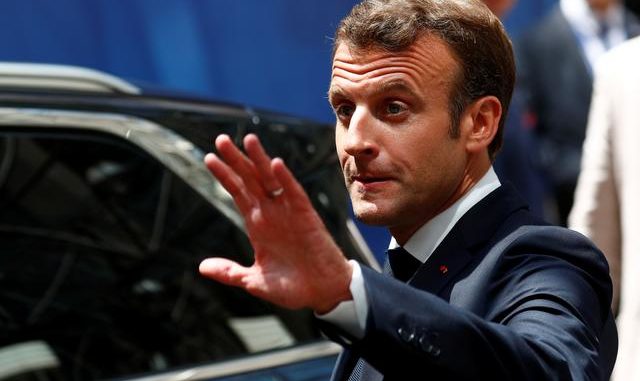
EU leaders suspended a summit on Monday after 20 hours of talks failed to produce a deal on who should get the bloc’s top jobs, prompting anger from French President Emmanuel Macron who said Europe’s indecision was hurting its image abroad.
Their inability to find consensus candidates during marathon negotiations that ran through the night reflected the fragmented state of the bloc’s parliament, and underlined the problems in reaching a common position on issues from migration to climate change that have grown as the bloc has expanded.
RELATED COVERAGE
- Italy’s Conte says cannot accept ‘precooked package’ for EU top jobs
- Austria says proposed allocation of EU top jobs lacked balance
See more stories
Macron, who left the venue shortly after the talks were abruptly called off until Tuesday morning, labeled the breakdown a “failure” though he said an agreement could still be found.
Eastern European countries had strongly objected to a deal hatched by him and the leaders of Germany and Spain to hand the European Commission presidency to Dutch socialist Fran Timmermans.
Timmermans’ nomination was also deeply unpopular with the center-right European People’s Party (PEP) group in the European Parliament, which argued it should hold the Commission presidency as it has the most lawmakers in parliament.
Macron said there could be no further enlargement of the 28-member bloc without reforms that permitted it to function.
The post of Commission president was just one of five that need allocating, also including president of the European Central Bank.
It is highly unusual for summit talks to run into a third day, and the current negotiations mark what is already the third attempt to fill the posts for at least the next five years.
Asked what the main sticking point in negotiations was, an EU official said: “The whole package.”
“It’s just unbelievably complicated. You have so many political factions,” said Dutch Prime Minister Mark Rutte, adding that some factions remained divided among themselves.Slideshow (8 Images)
German Chancellor Angela Merkel, whose Christian Democrat party belongs to the PEP, was more conciliatory toward the eastern nations, saying the EU’s larger members could not ignore the views of its smaller nations.
To be appointed, the next Commission president needs the support of at least 72% of the 28 member states, who must represent at least 65% of the bloc’s population.
Diplomats said getting names agreed was crucial for the EU’s standing, as more delays would only provide fodder for anti-establishment nationalists who say the bloc is out of touch with its citizens, divided and dysfunctional.
Alissa de Carbonnel, Foo Yun Chee, Peter Maushagen, Andreas Rinke, Alexandra Regida, Robin Emmott, Richard Lough, Belen Carreno, Gabriela Baczynska in Brussels, Toby Sterling in Amsterdam, Francesca Piscioneri in Rome, editing by John Stonestreet
BRUSSELS (Reuters) –
